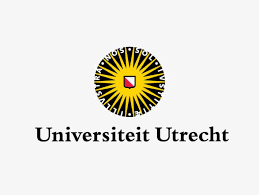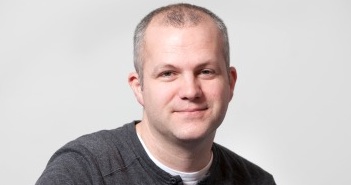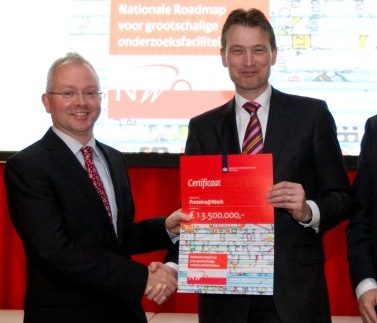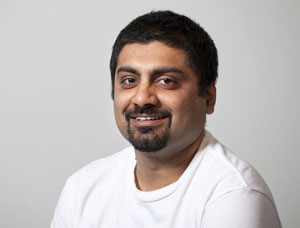Understanding how living systems function is one of the fundamental goals in bio-molecular science. The molecular machinery controlling these functions is comprised of a highly complex collection of distinct molecules that act in coordinate fashion. The global analysis of proteins, representing the key functional entities in the cell, forms arguably the basis for understanding how cells function. However, gathering information at the proteome level poses a tough analytical challenge, when comparing it to data collection at the genome and transcriptome level. This is mainly caused by its highly multilayered character with alternative splicing and diverse posttranslational modifications (PTMs), further amplified by the dynamic interplay between PTMs and proteins in complexes and signaling networks. This interplay leads to so called ‘crosstalk’ mechanisms, where, if one node in the complex machinery is affected, other nodes respond either compensatory or inhibitory. Uncovering this extreme complexity is one of the challenges that drives proteomics research, which heavily relies on mass spectrometry based protein sequencing. With the here proposed developments in methodology, sample preparation and computational analysis, I will contribute to overcoming this challenge. I will develop and implement a unique combination of high resolution quantitative proteomics tools that allow the analysis of this dynamic proteome at system wide scales, while maintaining physiologically relevant conditions. The tools will focus on sensitivity, crucial when dealing with limited sample amounts, comprehensiveness, to tackle (PTM) crosstalk, and throughput, important when targeting many different sample types. As model system I will perturb the melanoma cancer proteome, using physiological relevant slow dividing cell lines, tumour tissue and patient derived xenografts, and monitor its response in the face of PTM expression, network rewiring and drug resistance. As many types of cancer are lacking proper treatment caused by limited understanding of the molecular mechanisms involved, the developed technology will be widely applicable.
Tag: grant
13,5 million euro for large-scale research facility coordinated by Albert Heck
A programme coordinated by Albert Heck, scientific director of the Netherlands Proteomics Centre, has received financing from NWO to set up a large-scale research facility. The project ‘Proteins@Work’, in which various Dutch research institutes collaborate, receives 13,5 million euro. This was announced by State Secretary Zijlstra of OCW and Jos Engelen, chairman of NWO, this afternoon in Utrecht. The participating partners will make state-of-the-art technology, equipment and expertise in the field of the life sciences available to other researchers in the Netherlands.
In total, five programmes in the Netherlands receive financing from NWO within the National Road Map for Large-scale Research Facilities, for which 80 million euro was made available.
The Proteins@Work-facility will make high-level technology, equipment and expertise for studying proteins in cells and tissues available to the biological and biomedical researchers in the Netherlands. The facility is of great benefit to Dutch Life Sciences and, in particular, will aid in the prevention and diagnosis of disease. “We work with everybody who wants to understand how proteins work, for example how proteins can cause disease, but also how stem cells can develop into healthy organs”, says Albert Heck, the initiator of Proteins@Work. “Proteins are the essential workhorses in cells and to understand life, we need to know how proteins work together.” The Proteins@Work programme is a collaboration between Utrecht University, the UMC Utrecht, the Hubrecht Institute, the Erasmus MC Rotterdam and the Netherlands Cancer Institute and builds upon the Netherlands Proteomics Centre and the European large-scale proteomics facility, PRIME-XS.
More information
Martje Ebberink, communications NPC, (030) 253 4564, ebberink@npc.genomics.nl.
Vidi Grant for Shabaz Mohammed
Vidi grant for Shabaz Mohammed
Shabaz Mohammed has been awarded a Vidi grant for his proposal entitled: Decoding Cellular Communication by the Dutch Organisation for scientific Research (NWO).
Internal communication is key for cells to perform their function. Stem cells can become any cell type if the right signals are generated. This research aims to develop tools to decode internal communication of stem cells during such a transition.
The Vidi grant aims at the researcher who after having obtained his or her PhD already has conducted research for several years on a post-doc level and who has shown to be able to generate innovative ideas and independently and succesfully develops them. Researchers are given the opportunity to develop their own innovative research line and to appoint one or more researchers. The grant amounts to a maximum of 800,000 euros



